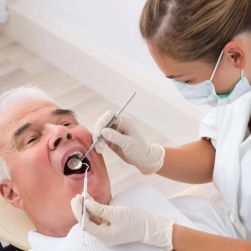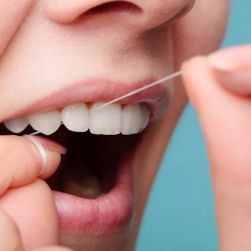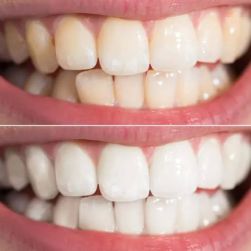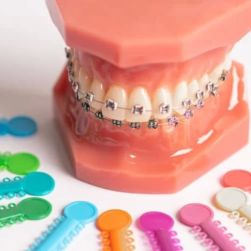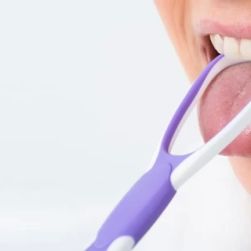Making the Most of Your Dental Insurance for Preventive Care
As I sat in the dentist's chair for my annual cleaning, I couldn't help but think about how many people forget the benefits their dental insurance offers. Like many, I used to think dental insurance was only for major treatments like fillings or root canals. However, over time, I learned that my insurance offers a lot more—especially for preventive care. The truth is, with the right approach, you can maximize your dental benefits and protect your oral health without breaking the bank.
1. Understanding the Basics of Dental Insurance for Preventive Care
Before diving into the specifics of how to use your dental insurance, it's essential to understand what preventive care includes. Preventive dental care typically refers to services that are designed to prevent oral health issues before they become significant problems. These services are usually covered at a high percentage by most dental insurance plans.
Preventive care generally includes:
- Routine dental exams (check-ups)
- Professional cleanings (prophylaxis)
- X-rays
- Fluoride treatments
- Sealants for children
2. Checking Your Dental Insurance Coverage for Preventive Care
One of the first things I did when I wanted to make sure I was using my dental benefits effectively was to read through my policy carefully. You may not realize it, but many dental insurance policies cover two cleanings per year at no additional cost to you. These are typically preventive services, meaning the dentist will focus on cleaning your teeth and checking for any signs of potential issues.
Additionally, some policies may include free annual exams and x-rays. I was surprised to find out that my insurance covered all preventive care costs, including fluoride treatments. While each insurance plan differs, preventive services are generally covered at 100%, which can be a huge savings in the long run.
3. Plan Your Visits Around Your Insurance Cycle
After understanding my benefits, the next step was scheduling my appointments. Most dental plans follow a calendar year, so it's important to keep track of when your insurance year resets. This can make a significant difference if your insurance covers a certain number of visits or services annually. I learned the hard way that if I waited too long, I might miss out on fully using my annual preventive care benefits.
For instance, my plan allowed for two cleanings and one exam each year. So, I made sure to book my visits early in the year to get them out of the way and maximize my coverage. That way, if I had any concerns or needed additional treatments later on, I had already used up my preventive care for the year, leaving me with more room for potential treatments.
4. Ask Your Dentist About Additional Preventive Services
During my visits, I also learned that it never hurts to ask the dentist about additional preventive services. Sometimes, your dentist may recommend fluoride treatments, sealants, or even custom mouthguards if you have specific concerns, like grinding your teeth at night. These treatments can be covered by your insurance if they’re considered preventive and not just cosmetic.
For example, I had a conversation with my dentist about sealants for my molars, which are more prone to cavities. I didn’t realize that my insurance covered sealants for children, and my dentist informed me that they could be beneficial for adults too. I was amazed at how much I could save on services that might otherwise be an out-of-pocket expense.
5. Preventive Care is an Investment in Your Future Health
Preventive dental care isn't just about saving money—it's about maintaining long-term health. While paying for these services upfront might seem like a hassle, not using them could result in bigger problems down the road, which will cost much more in the form of fillings, crowns, or even root canals. I realized that investing in regular cleanings and exams helped me avoid painful and expensive dental procedures in the future.
Moreover, preventive care is linked to overall health. Research has shown that poor oral hygiene can contribute to conditions like heart disease, diabetes, and even pregnancy complications. By staying on top of my preventive care, I not only protected my smile but also my general health. This realization made me appreciate my dental benefits even more.
6. Use Your Benefits Wisely: Don’t Let Them Go to Waste
It’s easy to forget about the benefits your insurance offers if you’re not actively keeping track of them. I had to learn the importance of taking full advantage of my dental benefits. One of the best pieces of advice I received from my dentist was to schedule my appointments for the entire year ahead. That way, I could ensure that I used my preventive care benefits before they expired, and I wouldn’t let them go to waste.
In some cases, people even forget to use their benefits completely, which can be disappointing when you realize that you paid for insurance but didn't get the full value out of it. I recommend keeping a reminder to schedule your visits early in the year, and check with your insurance provider to confirm what preventive services are covered.
7. Finding a Dental Office That Works with Your Insurance
Sometimes, the biggest challenge isn’t understanding your benefits but finding a dental office that works seamlessly with your insurance provider. It’s a good idea to verify whether your dentist accepts your insurance plan before you make an appointment. Additionally, some offices are better at navigating insurance claims than others, which can save you a lot of hassle.
Thankfully, I found a dentist who not only worked with my insurance plan but also took the time to explain my benefits in detail. I’ve had positive experiences with practices that prioritize preventive care and provide clarity on how best to use insurance benefits. If you're unsure where to start, visiting a dental practice that’s experienced with various insurance providers can be a good way to go.
Now that I’m fully aware of my insurance coverage and how to use it, I take full advantage of preventive care. I’ve learned that taking care of my teeth not only prevents costly procedures in the future but also contributes to my overall health. Preventive care isn’t just a way to save money—it’s a way to invest in my future health, and that’s something I’ll never take for granted.

